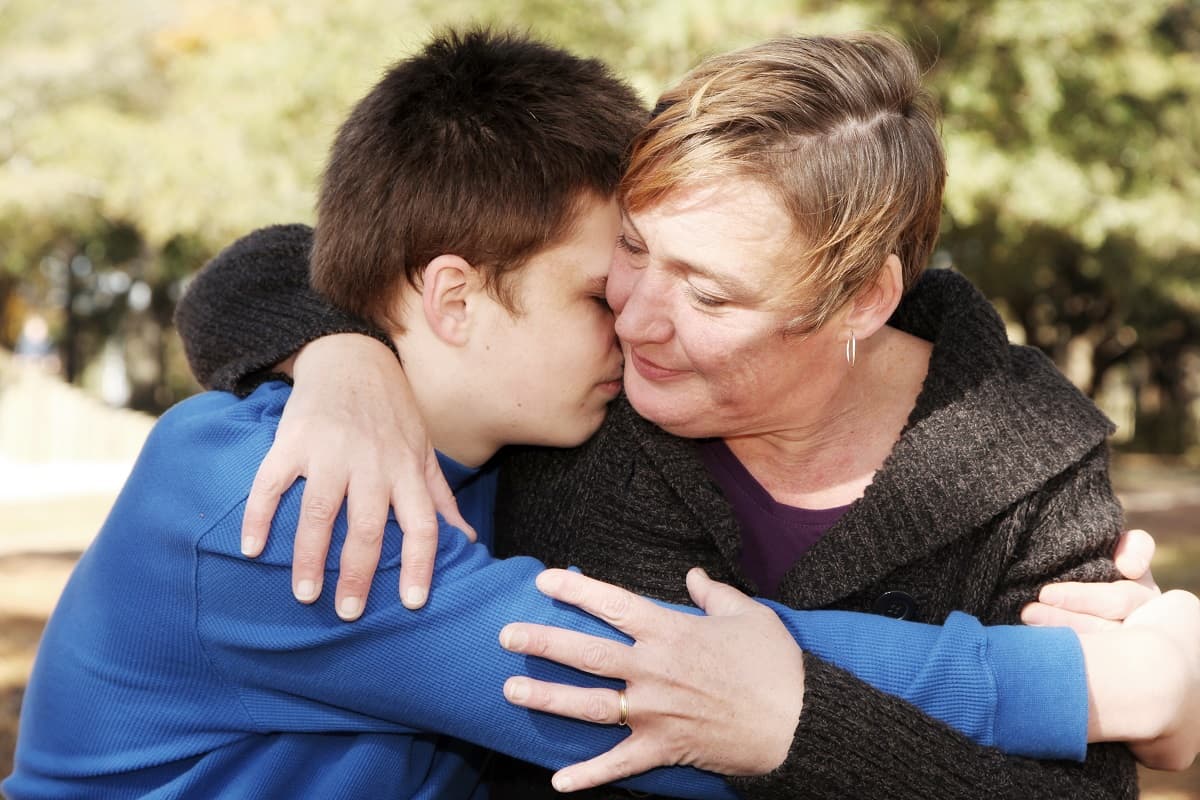Raising a teenager can be tough. It can be really hard to stay calm if they’re being rude, sulky and argumentative. And while we know it’s important to set a positive example by encouraging them to talk things through and listening sympathetically, sometimes all we want is for them to grow up and give us a break from all the drama!
Here are our top tips for keeping calm when you’re parenting a teen.
Tips to help you cope
Tip #1: Give yourself a break
None of us like shouting or losing our temper, but don’t be hard on yourself if it does happen. There’s no such thing as a perfect parent. And it’s okay to argue as long as you make up afterwards. So if you do lose your temper, set a good example by saying you’re sorry. This will encourage your teen to do the same thing, and help them deal with future disagreements with you or with their friends in a more positive way.
Tip #2: Don’t feel guilty about taking some time to yourself
While of course you want to be there for your teen and put them first, you can’t be available to them 24/7. To support them, you need to be in a good place yourself. It’s not selfish to look after yourself – the happier you are, the better support you can be for your family. Our page on looking after your mental health has lots of tips to help you de-stress.
Tip #3: Free up time for yourself
Taking time for yourself is all very well, but what if you don’t have any time? See if there are some practical things you can do to free up more time for yourself. For example, you could try:
- asking your teen to help out round the house more. If they expect you to treat them like an adult, there’s no reason why they shouldn’t take on adult responsibilities, like the washing, cooking or cleaning. Giving them a choice of chores will make them feel more in control and less like they’re being bossed around!
- getting into a routine. Having a plan for your day makes things run more smoothly, and you can schedule in your ‘me time’ alongside things like getting ready for school and cooking the tea.
- encouraging your teen to be more independent. If they’re relying too much on you for lifts, remind them that you’re not their personal taxi driver and they can use the bus for free with their Young Person’s Pass. You can find tips for helping kids stay safe on public transport on the Freebus.scot website.
Tip #4: Develop ways to keep calm when things get heated
Keeping calm is one of the best ways of defusing a row – but it’s often easier said than done! Here are some tricks you can try when you feel your temper start to rise:
- Look away – avoiding eye contact can help you calm down.
- Count to five with your eyes closed.
- Step away for 5 minutes.
- Take some deep breaths until you feel yourself calming down.
- Pick your battles. Ask yourself if this is really worth getting in to an argument about and if it’s not, let it go.
- Sometimes it’s best to talk things over when you’re not in the heat of the moment. Tell them that you’re both upset, and need a break right now. You can then talk about it later.
Tip #5: Practise being calm
The more you can practise being calm, the easier it will be to stay that way when your teen starts pressing your buttons. Slipping some calming exercise into your day is a great way of practising. Even 5-10 minutes can make a difference. Here are some things you could try:
- Breathing exercises are a nice easy way to relax and keep calm. There are some exercises you can try on the NHS Inform website.
- Mindfulness is all about slowing down and paying attention to the present moment. You can find out more about mindfulness on the NHS Inform website.
- Tai chi was originally created as a form of martial art. It involves flowing through a sequence of movements in a slow, focused way. There are lots of videos online you can try – you could start with this beginner’s video from the BBC. Or you could look for classes in your local area to get you started.
- Yoga is all about matching your breath to your movements, which can help you keep calm. There are lots of different kinds of yoga. Some (like ashtanga yoga) can be quite fast and vigorous, while others (like yin yoga) can be more restful. Again, there are lots of yoga videos online – you could start with this Vinyasa flow yoga video from the NHS or look for a class near you.
Tip #6: Talk to someone you trust
A problem shared is a problem halved. So if you’re feeling upset, talking to a trusted friend or family member can really help. Just be mindful of your teen’s privacy, so they don’t feel that you’re gossiping about them, or laughing at them behind their back.
If you don’t want to talk to someone you know, you can also chat to Children First's support line.
Our page on getting support when you’re raising a teen lists other places you can get help and advice.
Parenting a teen if you’re going through the menopause
Just at the time their kids hit the hormonal storm of their teen years, many mums can hit the hormonal storm of the menopause. This can make dealing with teenage dramas doubly difficult.
If this is you, you’re not alone. And while there’s no cure for teen moodiness, you don’t have to put up with the symptoms of perimenopause and menopause. There’s a lot that can be done to help manage symptoms, including making healthy lifestyle choices, trying different treatments and seeking support from healthcare professionals. Understanding and managing your symptoms will make it a lot easier to understand and cope with the symptoms of being a teenager.
 Activities & Play
Activities & Play Behaviour
Behaviour Childcare
Childcare Development & Growing Up
Development & Growing Up Family, Friends & Relationships
Family, Friends & Relationships Feeding Your Baby
Feeding Your Baby Food & Eating
Food & Eating Health & Safety
Health & Safety Mental Health & Wellbeing
Mental Health & Wellbeing Money & Work
Money & Work Online Behaviour & Safety
Online Behaviour & Safety Pregnancy & First Days
Pregnancy & First Days School & Education
School & Education Sleep
Sleep








 Family, Friends & Relationships
Family, Friends & Relationships
 Mental Health & Wellbeing
Mental Health & Wellbeing